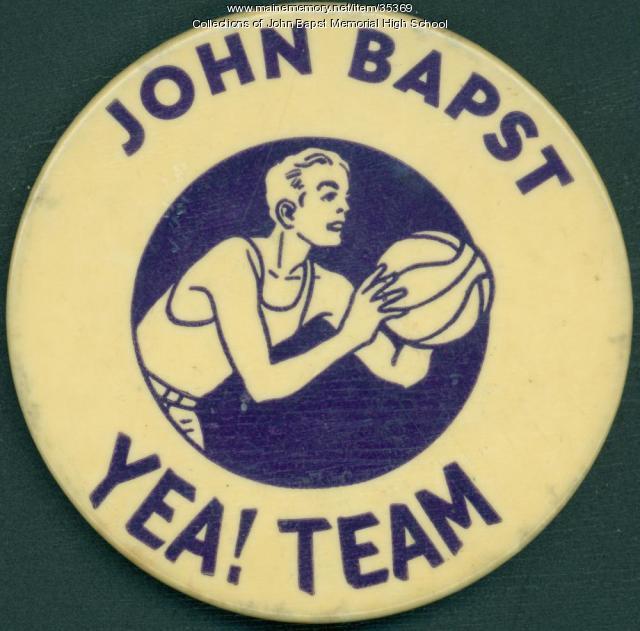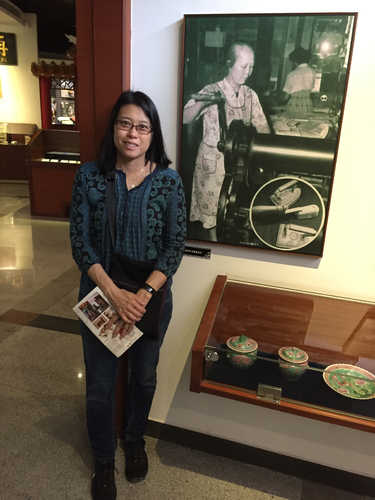Keywords: recognition
Item 81263
Symbol of Recognition for John Edward Barry, Portland, 1945
Contributed by: Mexico Historical Society Date: 1945-05-30 Location: Portland Media: Ink on paper
Item 9188
Certificate of recognition, Madeline Tuttle, Norway, 1944
Contributed by: Norway Historical Society Date: 1944-05-14 Location: Norway Media: Ink and foil on paper
Exhibit
John Bapst High School was dedicated in September 1928 to meet the expanding needs of Roman Catholic education in the Bangor area. The co-educational school operated until 1980, when the diocese closed it due to decreasing enrollment. Since then, it has been a private school known as John Bapst Memorial High School.
Exhibit
Redact: Obscuring the Maine Constitution
In 2015, Maliseet Representative Henry Bear drew the Maine legislature’s attention to a historic redaction of the Maine Constitution. Through legislation drafted in February 1875, approved by voters in September 1875, and enacted on January 1, 1876, the Sections 1, 2, and 5 of Article X (ten) of the Maine Constitution ceased to be printed. Since 1876, these sections are redacted from the document. Although they are obscured, they retain their validity.
Site Page
Historic Hallowell - Our Journey Home
"… of enterprise, a respect for education and a recognition of the importance of living by example -- were the foundations of the special quality of…"
Site Page
Historic Clothing Collection - The Maine Historical Society Historic Dress Collection - Page 2 of 2
"Only in very recent times has there been recognition of the value of a systematic approach to the research, study, and exhibition of clothing from…"
Story
Sarah Jane Poli: Biddeford’s first female school superintendent
by Biddeford Cultural & Heritage Center
An Italian immigrant's daughter is key to a family grocery store and a leader in the school system
Story
Ron Cote - Lessons from a star athlete and legendary coach
by Biddeford Cultural & Heritage Center Voices of Biddeford project
A local sports legend's life and how he applied his passion to help others pursue their own dreams.
Lesson Plan
Wabanaki Studies: Stewarding Natural Resources
Grade Level: 3-5
Content Area: Science & Engineering, Social Studies
This lesson plan will introduce elementary-grade students to the concepts and importance of Traditional Ecological Knowledge (TEK) and Indigenous Knowledge (IK), taught and understood through oral history to generations of Wabanaki people. Students will engage in discussions about how humans can be stewards of the local ecosystem, and how non-Native Maine citizens can listen to, learn from, and amplify the voices of Wabanaki neighbors to assist in the future of a sustainable environment. Students will learn about Wabanaki artists, teachers, and leaders from the past and present to help contextualize the concepts and ideas in this lesson, and learn about how Wabanaki youth are carrying tradition forward into the future.














